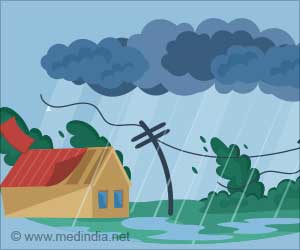Twenty Indian scientists lead the three reports by the Intergovernmental Panel on Climate Change (IPCC), which helped clinch this year’s Nobel Peace Prize.
Twenty Indian scientists lead the three reports by the Intergovernmental Panel on Climate Change (IPCC), which helped clinch this year’s Nobel Peace Prize. Each of these three reports holds out crystal clear evidence of global warming.
What does climate change mean to India? According to J. Srinivas, Chairman of the Mechanical Science Division and Professor at the Center for Atmospheric and Oceanic Sciences at the Indian Institute of Science (IISc.), population growth and the lack of planning , power global warming in India. “We do know that floods and droughts will increase. What makes things particularly complicated for India is that people have begun to inhabit places that make them acutely vulnerable to these phenomena,” he states.Dryland farmers, fishing communities, forest-resource dependent communities — the country’s poorest — will be the most adversely affected, according to N.H. Ravindranath, Chairman, Center for Sustainable Technology, IISc., and lead author of IPCC’s “Working Group III: Mitigation of Climate Change.”
“The environmental and poverty implications must be studied closely at the national level, and the poor protected from the consequences of climate change,” he adds.
Speaking of the impact of climate change on biodiversity, R. Sukumar, Professor, Center for Ecological Sciences (IISc) and lead author of “Working Group II: Impacts, Adaptation and Vulnerability” informs: “Rise in temperature and changes in rainfall patterns will influence seasonality, and there is not doubt that it will impact vegetation and its associated biodiversity such as wildlife.”
According to Prof. Srinivasan, India’s role in global warming in per capita terms, can be considered small (per head emissions do not exceed 4 to 5 per cent of global CO2 emissions). The U.S. is the single largest contributor with 20 to 25 per cent. Yet, in aggregate terms, however, India ranks among the 10 highest contributors, says Prof. Ravindranath. He adds that by the year 2020 India will climb up to the fourth or fifth place in terms of global emissions, sharing the same league as U.S. and China.
Even as the U.S. refuses to ratify the Kyoto Protocol to reduce its emissions, what role do these scientists see for India in mitigating climate change? “We should do our part to reduce the pace. It is something that is bound to affect us, after all,” Prof. Sukumar believes.
Advertisement
Source-Medindia
ANN/C






